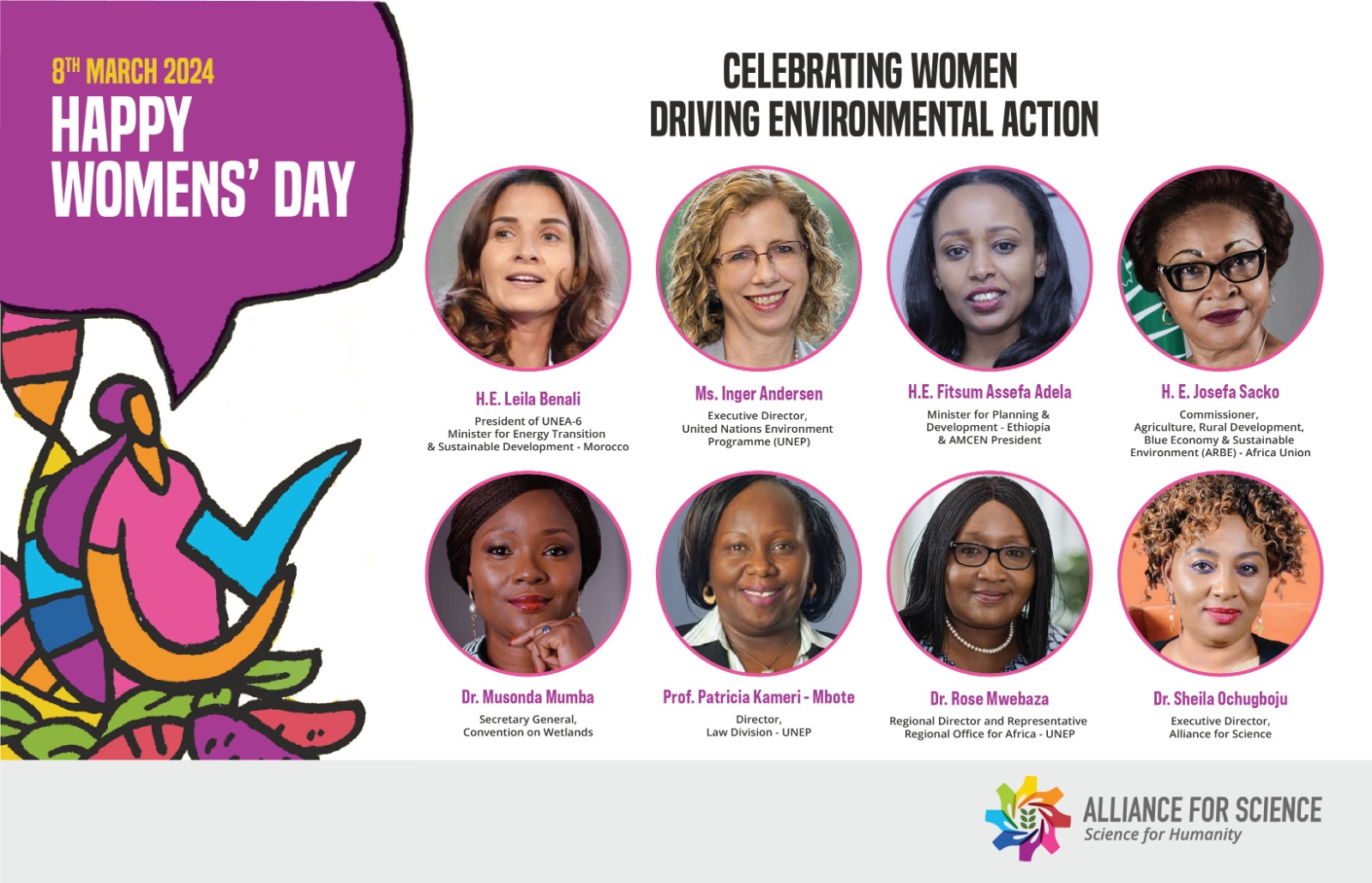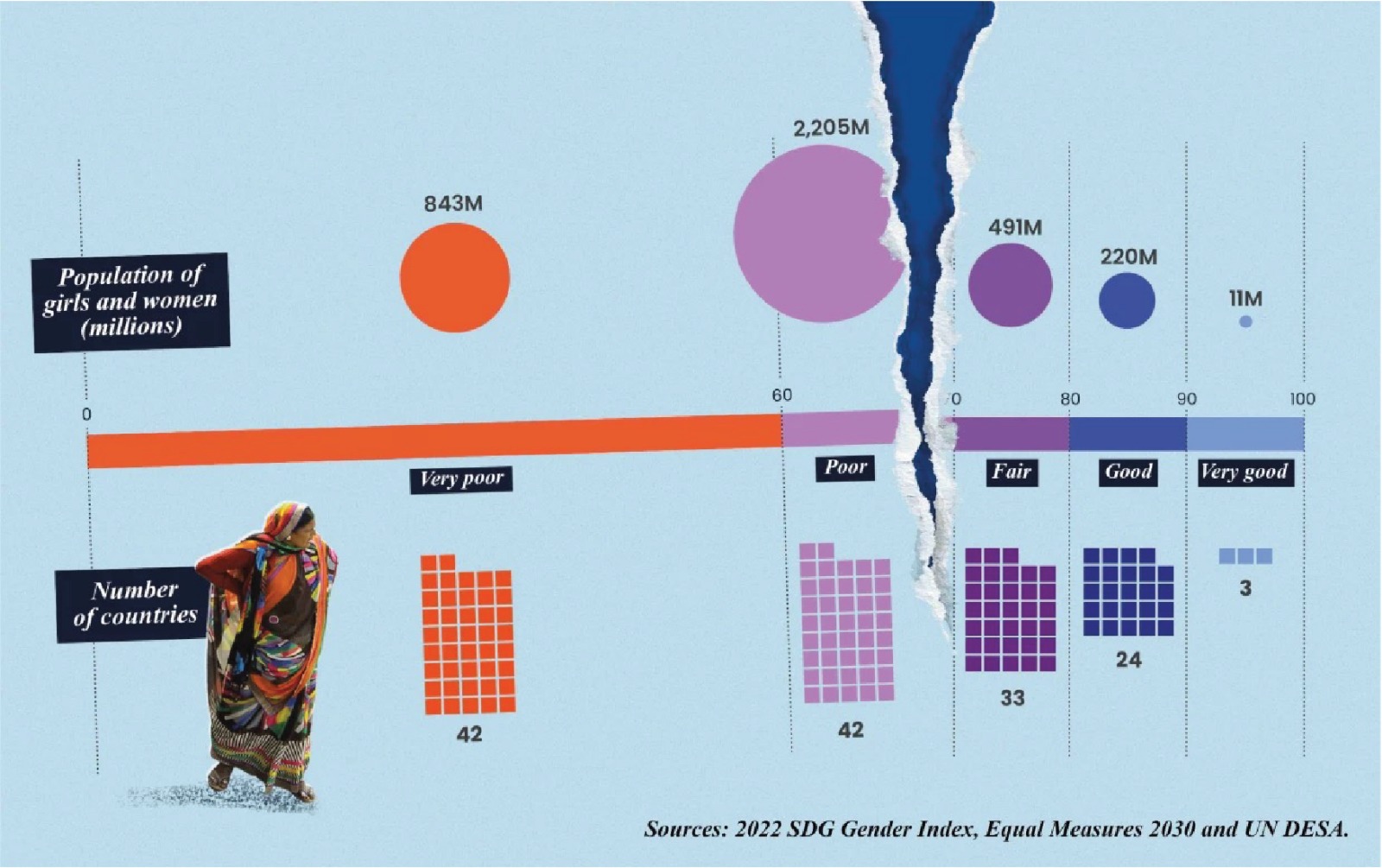
How wonderful to have a day to celebrate being a woman and to reflect on the challenges and opportunities for achieving gender equality.
This year, I want to take a moment to focus attention on seven extraordinary women who are driving environmental action and whom I have the privilege of supporting through our Memorandum of Understanding with the United Nations Environment Programme (UNEP), which we signed on the margins of the sixth session of the UN Environment Assembly (UNEA-6), the world’s highest decision-making body that meets biennially in Nairobi, Kenya to shape global environmental policy.
Urgent action for gender equality
Firstly, let’s openly acknowledge that the challenge is immense. The 2022 SDG Gender Index finds little progress on gender equality globally between 2015 and 2020. If current trends continue, the global score will reach only 71 out of 100 by 2030, the deadline for achieving the Sustainable Development Goals (SDGs).
This is very disturbing because the definition of gender equality encompasses every area of a woman’s life: how she participates in economic activities, her educational attainment, health, and political empowerment.
More than three billion girls and women still live in countries with ‘poor’ or ‘very poor’ scores for gender equality.

Justice is at the heart of our call for gender equality.
It is unjust for women to have unequal access to the world’s resources and to suffer disproportionately from the impacts of global threats to their livelihoods, well-being, safety, and security.
When it comes to environmental impacts, indicators also show widening inequities since gender inequality coupled with the climate crisis multiplies the threats to women as they typically have a high dependency coupled with low access to natural resources and additional responsibilities for securing food, water, and fuel.
Recognizing that gender equality is an issue of justice, we are particularly happy to have signed a Memorandum of Understanding with the UNEP Law Division on February 26, 2024, under the leadership of a dynamic woman who is my personal icon and mentor – Professor Patricia Kameri-Mbote.
This agreement underscores our commitment at the Alliance for Science to contribute to the Montevideo Environmental Law Programme, which supports member states in various objectives, including;
- Developing and promoting information and data exchange among legal stakeholders;
- Promoting public participation, access to information, and access to justice in environmental matters;
- Promoting the recognition of the mutually reinforcing relationship between environmental law and the three pillars of the Charter of the United Nations;
- Supporting collaboration and promotion of partnerships; and
- Supporting environmental law awareness-raising initiatives at different levels.
Women at the center of environmental governance
It is particularly inspiring to see so many women leading the change in environmental action globally. At the zenith, we celebrate the President of UNEA-6, H.E Dr Leila Benali, who guides all 193 UN Member States in the Assembly to recognize the importance of cooperation with multilateral environmental agreements (MEAs). These address the most pressing issues of global or regional concern and are critical instruments of international environmental governance. The Assembly also defines the critical work of UNEP led by the visionary Executive Director Ms Inger Andersen.
H.E. Fitsum Assefa Adela, President of AMCEN, Minister of Planning and Development, Ethiopia, and H.E. Josefa Sacko, African Union Commissioner for Agriculture, Rural Development, Blue Economy, and Sustainable Environment, are two women with great passion and vigor guiding experts in Africa to tackle the “triple planetary crisis” of climate change, nature loss and pollution.
Together, they facilitate the activities of the African Group of Negotiators (AGN), which represents the needs of the continent and its sovereign governments at the annual UNFCCC Climate Talks.
It is also wonderful to celebrate this day with two close colleagues and sister friends: Dr Musonda Mumba, the Secretary General of the Convention on Wetlands, and Dr Rose Mwebaza, Regional Director and Africa Representative for UNEP.
Because I know their formidable strengths, indomitable spirit, and incisive intellect, I can sleep well at night amid dismal stories and scenarios of droughts, floods, and other climate disasters. These two ladies are at the helm of incredible global and regional teams coordinating high-impact initiatives worldwide; no one can let Mother Earth down on their watch.
As for me, at the Alliance for Science, our teams will be focusing on several ambitious flagship projects:
- Building Resilience: Advocacy campaigns to promote resilience-building measures.
- Strengthening Inclusivity: Introducing the Africa Young Environmentalists Network (AYEN) through Project ReBirth.
- Promoting Collaboration: Facilitating collaboration among South-South countries for innovative solutions.
- Please support us in creating spaces for dialogue about contentious issues, challenging misinformation that polarizes communities, and ushering in a new generation of environmentalists, especially women and girls.
__________________________________________________________________________________________
Dr Sheila Ochugboju is the Executive Director of the Alliance for Science.
